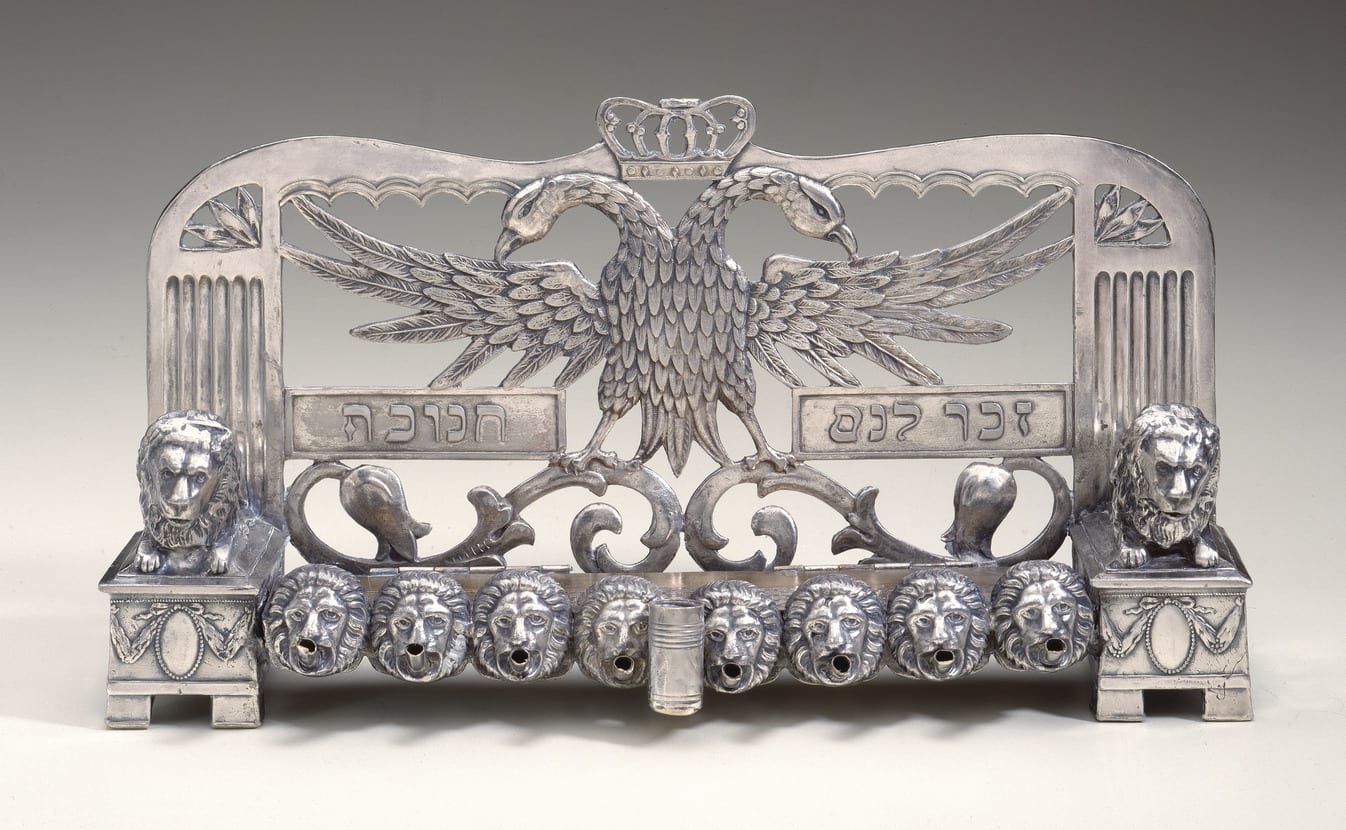
- Object Name:
- Hanukkah Lamp
- Place Made:
- Germany
- Date:
- second half 19th century
- Medium:
- Silver: cast and acid-etched
- Dimensions:
- 5 11/16 × 10 15/16 × 3 1/2 in. (14.5 × 27.8 × 8.9 cm)
- Credit Line:
- Gift of Dr. Harry G. Friedman
- Accession Number:
- F 802
Not On View
The lively combination of neoclassical columns and garlands with the stylized floral vines indicates that this piece is in the neoclassical revival style of the late nineteenth century. The lamp should be attributed to Germany based on two related examples with German post-1888 hallmarks.
The inclusion of the double-headed eagle is of interest, as it was the emblem of the German emperors who claimed descent from the Holy Roman Empire. The symbol went out of use in Germany in 1871, when the empire gave way to a national state and the single-headed eagle was selected as its emblem. This lamp therefore probably dates to before 1871. However, Jewish attitudes toward the imperial crown and its symbol must have been ambivalent at best during this period. In their struggle for full civil and political rights, many Jews had joined the revolution of 1848-49, whose Parliament extended equality to Jews. The revolution eventually failed, and it was not until the establishment of the Republic in 1871 that all political and civil restrictions against minority religions were abolished.
The inclusion of the double-headed eagle is of interest, as it was the emblem of the German emperors who claimed descent from the Holy Roman Empire. The symbol went out of use in Germany in 1871, when the empire gave way to a national state and the single-headed eagle was selected as its emblem. This lamp therefore probably dates to before 1871. However, Jewish attitudes toward the imperial crown and its symbol must have been ambivalent at best during this period. In their struggle for full civil and political rights, many Jews had joined the revolution of 1848-49, whose Parliament extended equality to Jews. The revolution eventually failed, and it was not until the establishment of the Republic in 1871 that all political and civil restrictions against minority religions were abolished.
Information may change as a result of ongoing research.